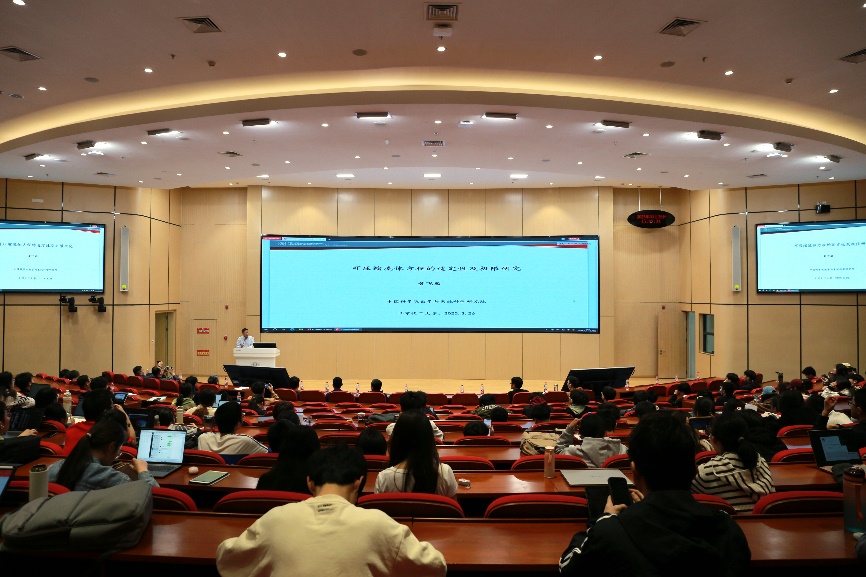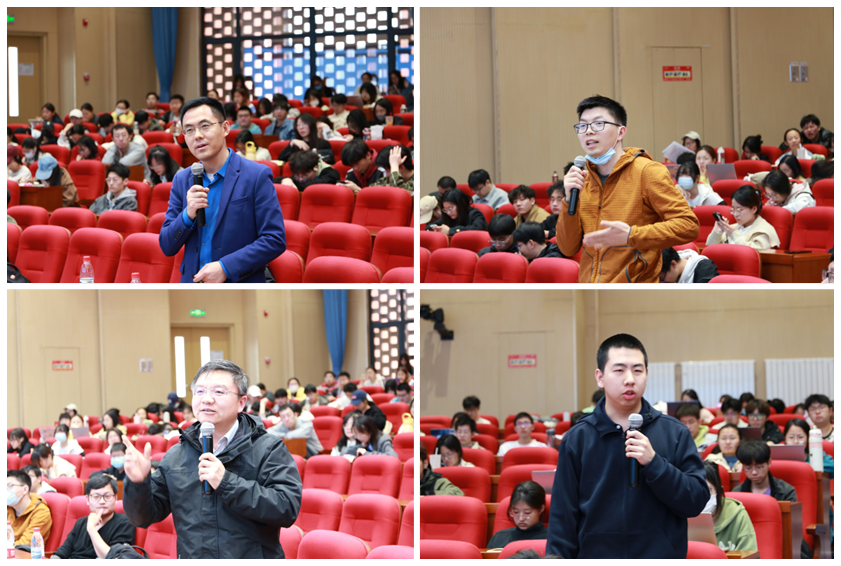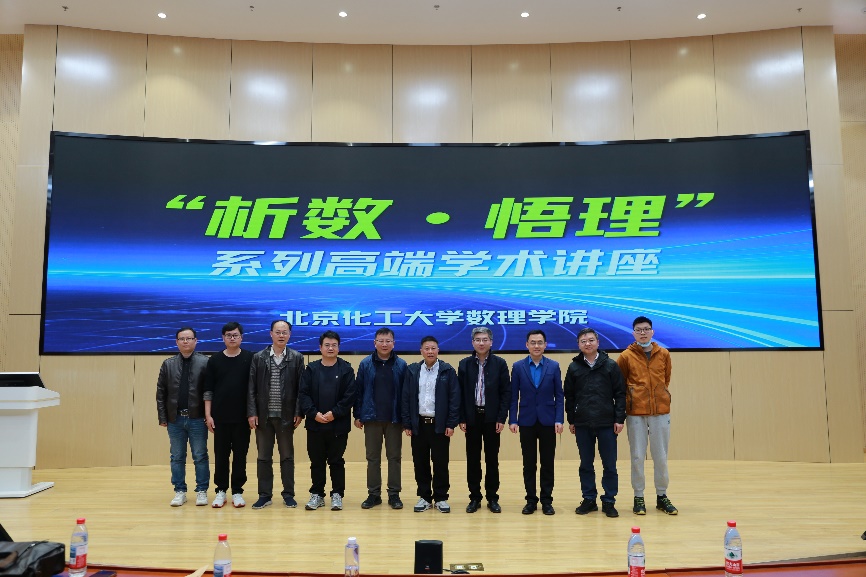The fourth session of "Xishu·Wuli" high-level academic lecture series was successfully held in College of Mathematics and Physics on March 26th in the Qiuzhen Lecture Hall at Changping Campus. Researcher Huang Feimin from the Academy of Mathematics and Systems Science (AMSS), Chinese Academy of Sciences, who delivered an academic report titled "Well-Posedness and Limit Behavior of Compressible Fluid Equations." Over 200 attendees, including graduate and undergraduate students from the Changping campus and faculty members, participated in the lecture, which was chaired by Professor Wang Wei, Dean of the College of Mathematics and Physics.
Researcher Huang commenced his presentation by highlighting recent groundbreaking work in Hilbert's Sixth Problem by Professor Deng Yu of the University of Michigan and collaborators. He systematically traced the research trajectory from Newton's laws governing microscopic particle motion, through the mesoscopic perspective of the Boltzmann equation describing particle distributions, to the macroscopic classical fluid dynamics models such as the compressible Euler and Navier-Stokes equations. Drawing on his team's years of research, Huang provided an in-depth analysis of the critical challenges in the well-posedness theory of these equations. He emphasized their recent breakthrough achieved through the construction of a novel mathematical framework, which reveals the structural stability of solutions to compressible fluid equations and provides theoretical support for unifying the mathematical modeling of physical systems.

During the interactive session, faculty and students actively engaged with questions concerning mathematical tool innovation and interdisciplinary applications. Researcher Huang patiently addressed each query, dissecting the core issues based on his extensive research experience. He encouraged young scholars to "explore new perspectives from classical problems and advance fundamental science through cross-disciplinary thinking."

Following the lecture, Researcher Huang held a discussion with faculty representatives from the College of Mathematics and Physics on topics including discipline development and research collaboration, and took commemorative photos with attendees. This event, by providing a dialogue platform with a leading scholar, further fostered a vibrant academic atmosphere dedicated to foundational disciplines and the exploration of cutting-edge research frontiers.

【Introduction to the expert】
Huang Feimin is a Hua Loo-Keng Chair Professor, serving as the Vice President of the Academy of Mathematics and Systems Science (AMSS), Chinese Academy of Sciences. He holds the positions of Party Secretary and Vice President of the Chinese Mathematical Society and is a Fellow of the China Society for Industrial and Applied Mathematics. He is also a recipient of the National Science Fund for Distinguished Young Scholars. Professor Huang graduated from the Department of Mathematics at Huazhong University of Science and Technology in 1991, obtained his M.S. from the Wuhan Institute of Mathematical Physics, Chinese Academy of Sciences in 1994, and earned his Ph.D. from the Institute of Applied Mathematics, Chinese Academy of Sciences in 1997. His accolades include the 2004 SIAM Outstanding Paper Prize and the 2013 Second Prize of the State Natural Science Award. In 2013, he was recognized in the 20th Anniversary Commemoration of the National Science Fund for Distinguished Young Scholars. His primary research focuses on the theoretical study of nonlinear partial differential equations, particularly the well-posedness of solutions and hydrodynamic limits for the compressible Euler equations, compressible Navier-Stokes equations, and the Boltzmann equation. He has published over 100 widely cited academic papers. Professor Huang currently serves on the editorial boards of several prestigious international and domestic journals, including Communications in Mathematical Sciences, Nonlinear Analysis: Real World Applications, Science China Mathematics, Acta Mathematicae Applicatae Sinica, and Acta Mathematica Scientia.
